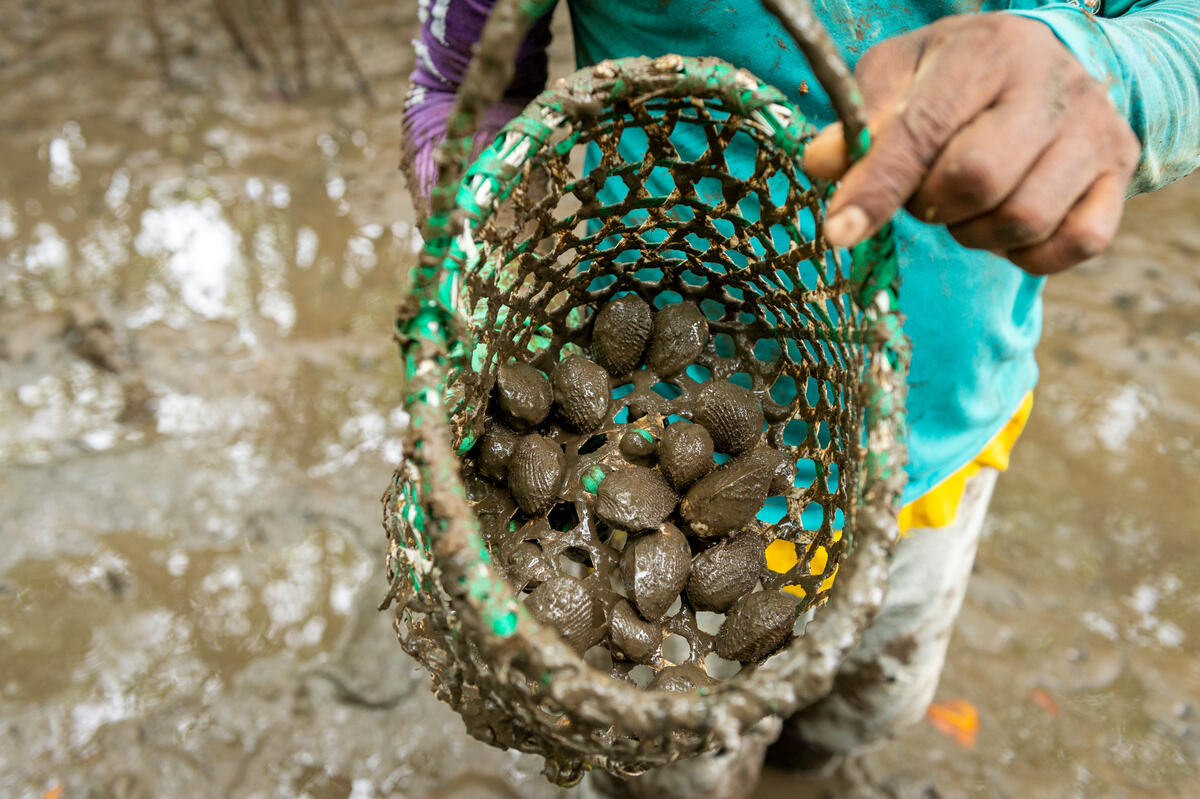Protecting Our Earth: How Mangrove Oysters Are Boosting Food Security for One Indigenous Family in Ecuador

The time is now to rescue our planet’s damaged ecosystems. This year marks the first Earth Day celebrated within the United Nations Decade on Ecosystem Restoration – a time to prevent, stop and reverse the degradation of ecosystems on every continent and in every ocean. With support from the government of Ecuador and the United Nations World Food Programme (WFP), one Indigenous family in Ecuador is working to accomplish just that.
“Without the mangroves, there is no life for us,” said Rosa of the swamp area that serves as a protective ecosystem for her community.
Collecting the Oysters
Rosa, her husband José and their son wake up at the crack of dawn to go collect mangrove oysters – small, edible oysters that grow underwater on mangrove roots and provide both a source of nutrition for Rosa’s family and a source of income.
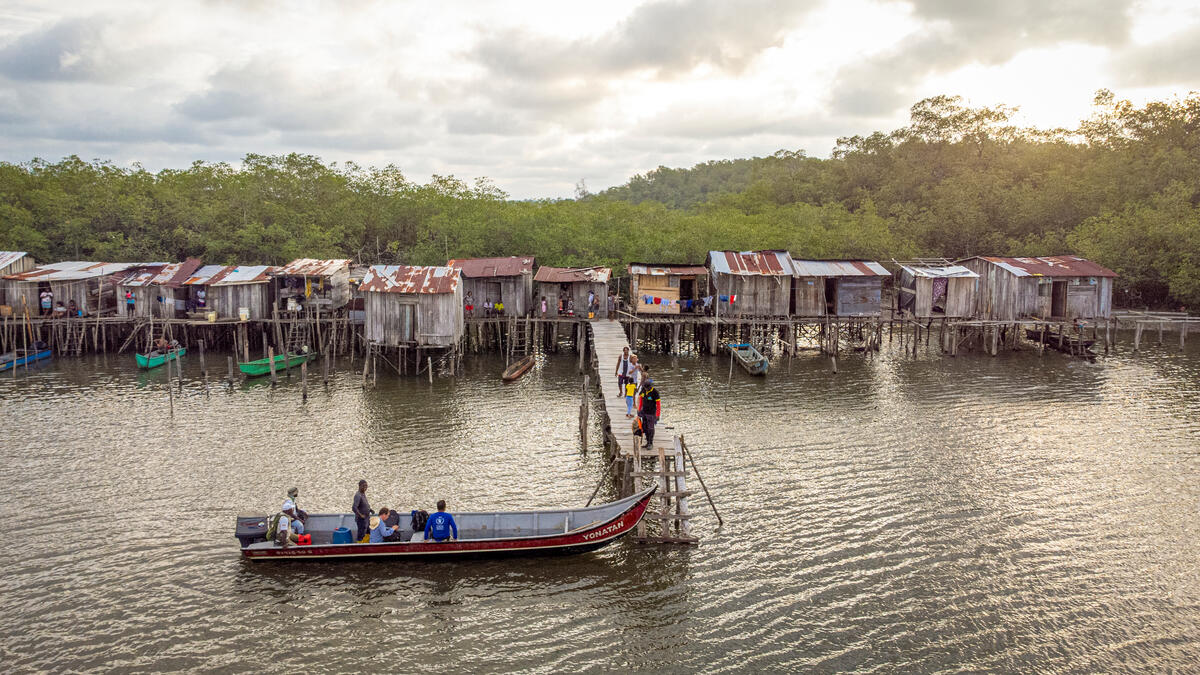
Rosa and her family live in the Punta de Miguel community near Ecuador’s border with Colombia.
“The mangroves mean a lot to me because this is where we grew up, it is where our food is produced,” said Rosa, a migrant from Colombia. “It is our life.”
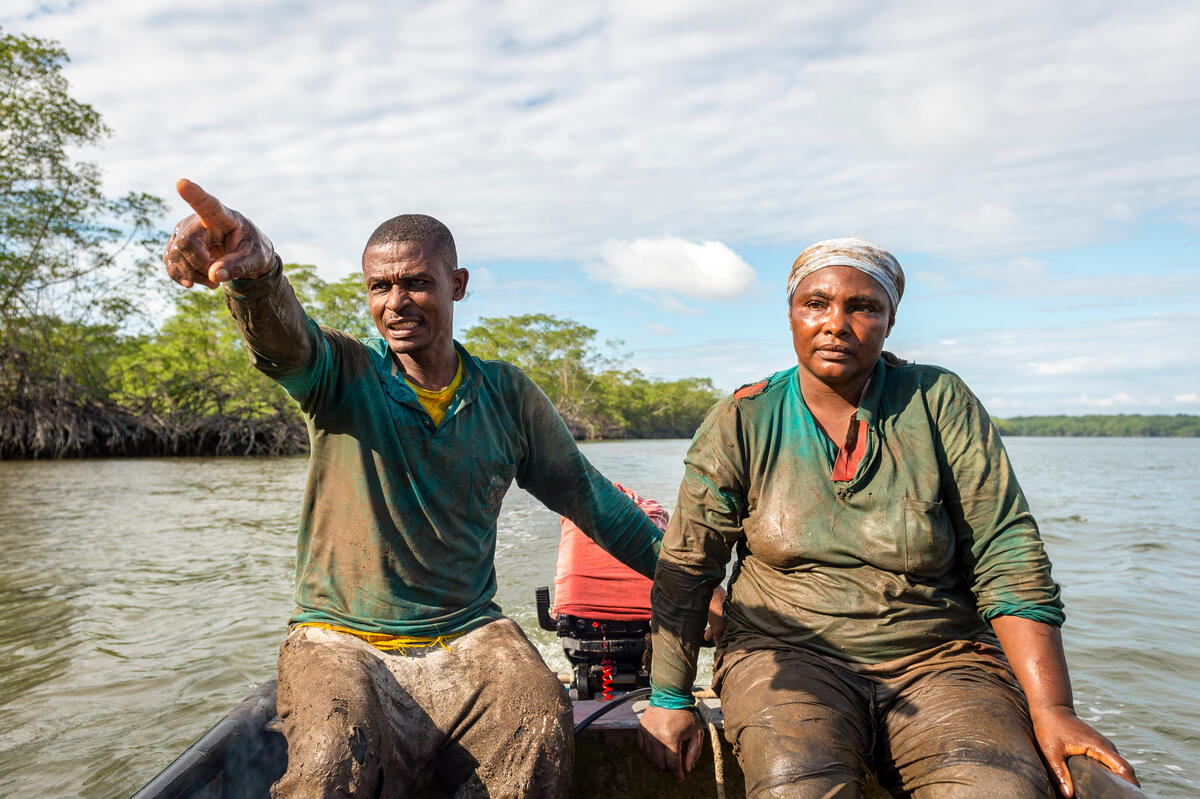
Rosa, José and their son often skip breakfast to leave the house by 5 a.m. and begin collecting mangrove oysters.
Rosa’s family crosses the mangrove swamp by boat until they reach areas where they can collect the oysters. Once in place, she and José light a wick – the smoke helps to keep insects away – and wade waist-deep through the mud, feeling for oyster shells in crevices.
Every day, Rosa and her companions risk getting trapped among the mangrove roots, being stung by toadfish or bitten by the snakes that hide within the groves.
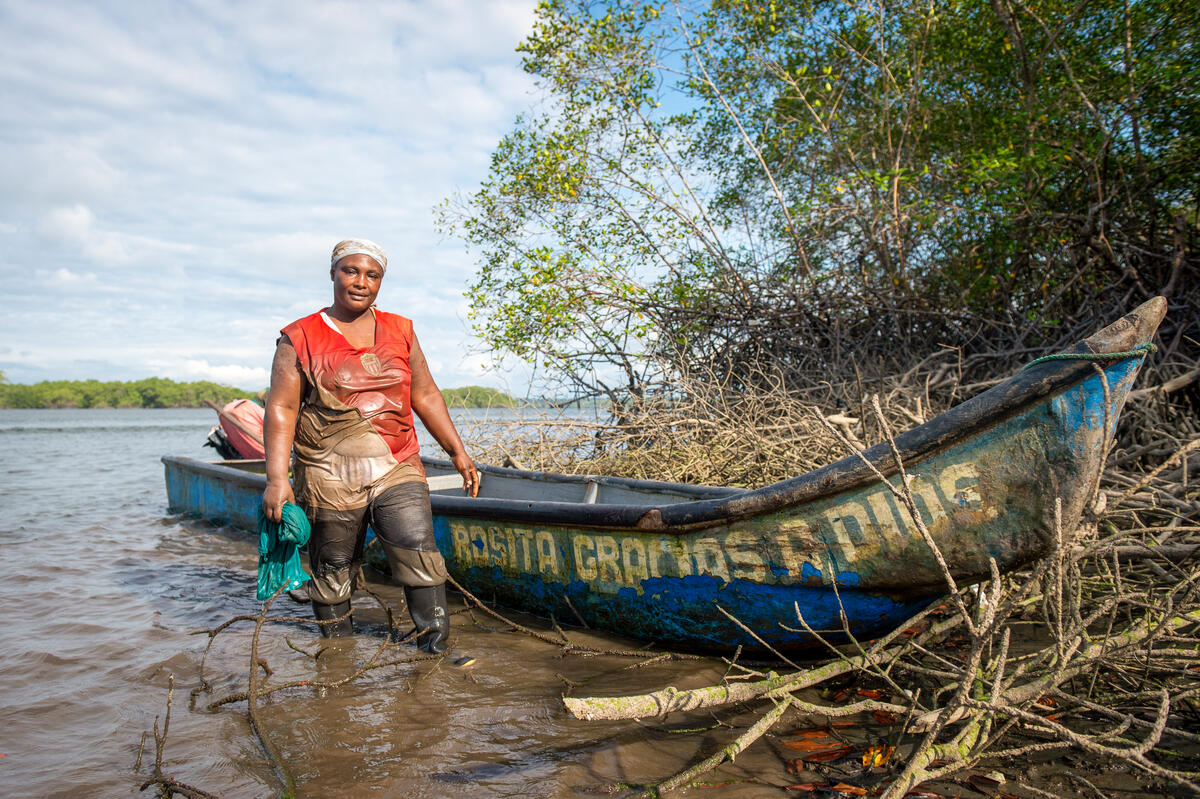
The thicket of roots created by the mangrove trees provides a natural barrier against extreme weather, allowing hundreds of families to continue a tradition of artisanal fishing.
The number of shells they collect depends on the tide and the time they spend in the mangroves, which ranges from five to six hours a day. After filling their baskets one shell at the time, they clean their catch and and return to the port to wait for traders. 300 shells can fetch $30.
Mangroves Are in Danger
Despite their importance as ecosystems and for the survival of local communities, in the past four decades thousands of acres of mangrove have been lost to human actions, like deforestation, or to climate-related events, like the El Niño and La Niña phenomena which bring intense rains and high tides.
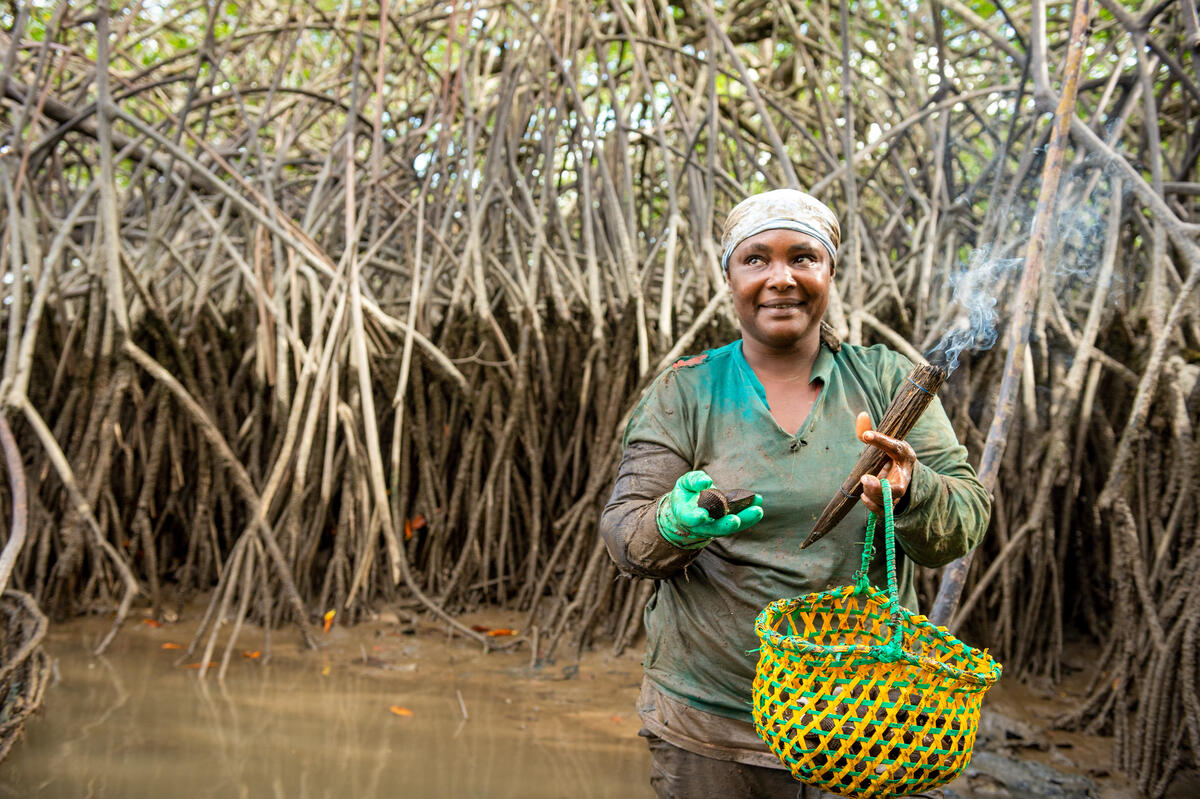
Rosa and her family are participating in a climate change adaptation project which aims to restore her community’s degraded ecosystems.
To protect the mangroves, Rosa participates in a reforestation project led by the government of Ecuador with the support of the U.N. World Food Programme (WFP). The project covers the reforestation of nearly 1,000 acres of land and the conservation of 37,066 acres of mangroves. Over 66 communities, of whom 38 are of African descent while 28 are from the Awá Indigenous community, are participating in the project.
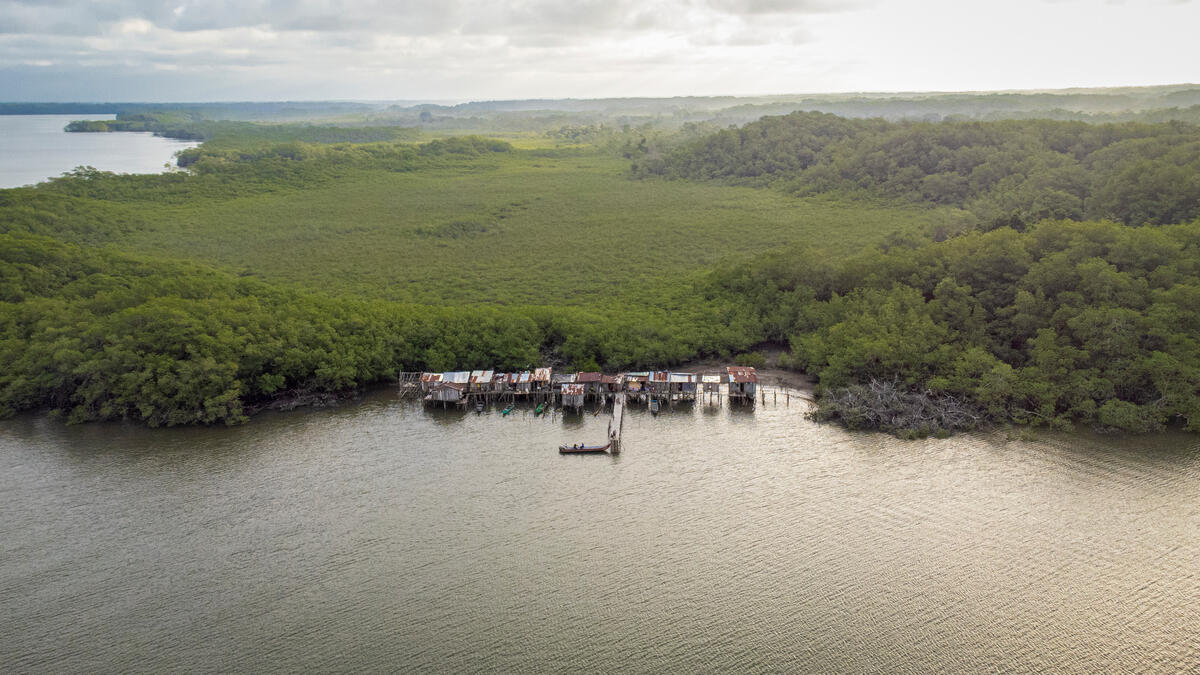
The Mira-Mataje and Guáitara-Carchi watersheds have been severely degraded due to human actions like waste disposal and deforestation, as well as climate variability including El Niño and La Niña – which affect the community livelihoods, life and food security.
“If the mangrove disappeared, it would be the end of our lives because we live off them,” says Rosa. “Without mangroves, there is no life for us.”
Across Ecuador, the U.N. World Food Programme is working with communities like Rosa’s to strengthen their capacity to adapt to climate change and respond to extreme weather events. Through scientific and traditional knowledge, we are working to save lives and the planet hand-in-hand with the people we serve.
This story originally appeared on WFP’s Stories on March 8, 2022 and was written by Diana Mora.

